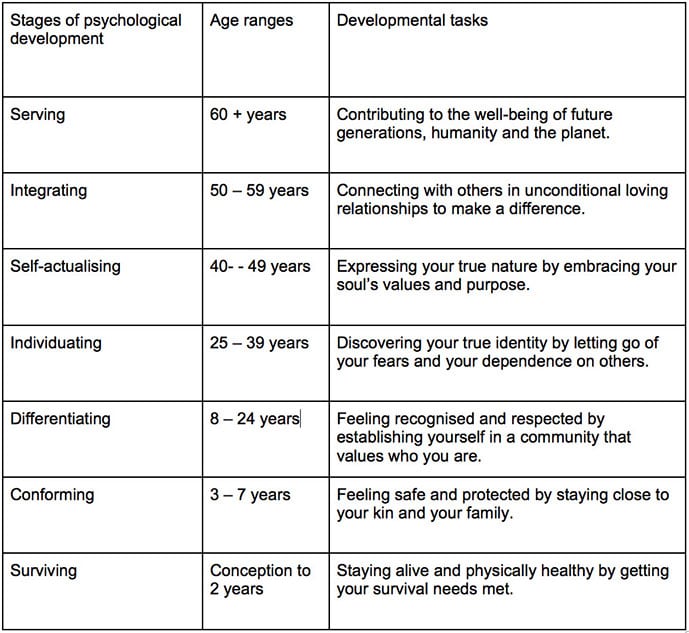The Marvelous Journey Through Childhood: Understanding the Stages of Age Development
Welcome to the wondrous world of parenting! ? As your little one embarks on their journey from infancy to adolescence, each milestone is a cause for celebration and a new opportunity for learning. This comprehensive guide will explore the intricate stages of age development, offering insightful tips and cheerful encouragement to guide you through the thrills and challenges of raising happy, healthy children.
Introduction to the Stages of Age Development
Just as a caterpillar transforms into a butterfly, children go through remarkable transformations as they grow. The stages of age development are like a roadmap, providing key insights into what to expect and how to best support your child’s growth. Understanding these stages will help you foster your child’s potential and ensure a joyful and nurturing environment.
Infancy: A World of Rapid Change (0-2 Years)
Ah, infancy—the time when every coo and giggle is a marvel. This stage is characterized by rapid physical and emotional growth. Here’s what to look out for:
- Sensory Development: Watch as your baby discovers their five senses. The development of touch, taste, sight, hearing, and smell is crucial for building connections with the world around them.
- Motor Skills: From holding their head up to taking those first toddling steps, motor skill development is monumental during infancy.
- Social Interaction: Interaction through cuddles, smiles, and play helps form the foundation of your baby’s social skills and emotional understanding.
- Language: Babbling is the prelude to language. Encourage your little one by talking and reading to them, and soon enough, they’ll start forming their first words!
Remember, every little milestone is part of a bigger picture, and your love and care are essential components of their development. Keep those cameras ready — these moments are fleeting and absolutely precious. ?
The Toddler Years: Exploring and Learning (2-3 Years)
When your child enters the toddler stage, it’s as if a miniature explorer has been unleashed in your home. This is the time of astounding curiosity, independence, and, yes, the occasional temper tantrum. Toddlers are known for:
- Language Expansion: Expect a burst in vocabulary and sentence formation as your child begins to communicate their thoughts and needs more clearly.
- Social Skills: Sharing, playing, and making friends become significant aspects of their lives. They learn to understand emotions and how to express them.
- Cognitive Development: This phase is marked by the ability to follow simple instructions, identify colors, and understand everyday concepts.
- Physical Growth: Running, jumping, and climbing—toddlers are on the move! Their hand-eye coordination and fine motor skills allow for activities like drawing and building blocks.
It’s an adventure-filled time! Your patience and guidance will help them navigate this stage with confidence and joy. ?
The Preschool Age: A Burst of Growth and Independence (3-5 Years)
As your child blossoms into a preschooler, it’s like the curtains are raised on Act Two of their development! There’s a significant leap in self-reliance and cognitive abilities. Here’s what to keep an eye on:
- Language Development: Expect your child to become a little chatterbox! They’ll start to form complex sentences, understand the use of proper grammar, and enjoy telling stories.
- Cognitive Skills: Preschoolers begin to grasp more advanced concepts like cause and effect, time, and basic math skills.
- Social and Emotional Growth: Friendships become more nuanced, and they start to master the art of cooperation and empathy towards others.
- Physical Milestones: Fine motor skills are refined – your little one might show interest in writing, drawing, and attempting to tie their shoes.
Embrace this stage by fostering their newfound skills with creative play and age-appropriate academic challenges. This is a magical time when imagination and learning go hand in hand. ?
As your guide through the various stages of your child’s development, we’ll continue to delve into the later childhood years, covering the ins and outs of each transformative period. Coming up, we’ll explore the elementary years, pre-adolescence, and teenage phases, so stay tuned for more insights into what awaits you and your blooming child.
The parenting journey is ever-evolving, and having a clear understanding of the stages of age development can provide you with the tools you need to support your child through each unique phase. The joy of watching your child grow and thrive in their own way is truly incomparable, and it all starts with embracing each step of this marvelous journey together.

5 Essential Tips for Parents in Preparing for Stages of Age Development
When it comes to the developmental stages of your precious little ones, it helps to have some guidance at your disposal. Here are five vital things every parent should be aware of when preparing for the stages of development:
- Consistency is Key: Establish a predictable routine that your child can rely on. Consistent bedtime routines, mealtimes, and playtimes offer the structure needed to help children feel safe and secure as they navigate their world.
- Nurturing Your Child’s Strengths and Interests: Each child is unique, with their own set of talents and preferences. Foster these individual strengths and interests by providing opportunities for them to explore and develop in a way that makes them most excited about learning.
- Encouraging Positive Behavior: Positive reinforcement goes a long way in promoting good behavior. Use praises, rewards, and love to encourage the behavior you’d like to see, rather than focusing solely on disciplining the negative.
- Fostering Independence: While it might be hard to step back, it’s crucial for children to learn how to do things on their own. Allow them the space to try new things, make mistakes, and learn from them. This helps build confidence and self-reliance.
- Staying Involved: Involved parents make a world of difference. By participating in your child’s learning and showing interest in their activities, you validate their experiences and support their emotional and intellectual development.
Early Elementary Years: Growing Minds and Bodies (6-8 Years)
As your child starts their elementary school years, you’ll see an even more independent little person emerging. With schooling, they’ll develop:
- Academic Skills: Reading, writing, and basic arithmetic become cornerstones of your child’s learning, as these skills are critical for future academic success.
- Social Expansions: Their social circle widens significantly during this time, and they learn to navigate the complex world of school dynamics, friendships, and teamwork.
- Cognitive Advances: Expect impressive leaps in logical reasoning, problem-solving, and understanding of complex ideas. This is the time to introduce brain-teasers and puzzles that challenge their thinking.
- Physical Endurance: Your child’s energy levels and physical coordination are greater than ever. Sports, dance, and active play are great outlets for their boundless energy.
Cheer them on at soccer games or be the audience for their living room concerts. Every bit of support encourages your child to discover more about their capabilities and passions. ???
Pre-Adolescence: The Precursor to Teenage Years (9-12 Years)
These are the bridge years to adolescence, where the groundwork for teenage life is set. During pre-adolescence, you may notice:
- Advanced Cognitive Growth: Critical thinking, abstract logic, and problem-solving skills are taking shape. Support this by engaging in discussions that challenge their perspectives.
- Emotional Complexity: Pre-adolescents start experiencing a wider, deeper range of emotions. Be there to listen, offer advice, and navigate these emotional waters together.
- Social Awareness: The importance of peer relationships increases, often impacting self-esteem. Encourage your child to develop a strong sense of self and to embrace their individuality.
- Physical Changes: This is typically the onset of puberty, so prepare for growth spurts and other physical changes. Keeping an open dialogue about these changes can ease any potential anxieties.
By providing them with the love and guidance they need, you’ll help prepare your child for the exciting, sometimes formidable, teenage years. ?
To sum it up, parenting is about love, patience, and a little bit of strategic planning. With every passing stage, you will gather more wisdom, more remarkable memories, and the extraordinary experience of watching your child bloom right before your eyes. So take a deep breath, enjoy every giggle, question, and hug, and remember that you are doing an incredible job on this marvelous journey through your child’s childhood.
See more great Things to Do with Kids in New Zealand here. For more information see here
Disclaimer
The articles available via our website provide general information only and we strongly urge readers to exercise caution and conduct their own thorough research and fact-checking. The information presented should not be taken as absolute truth, and, to the maximum extent permitted by law, we will not be held liable for any inaccuracies or errors in the content. It is essential for individuals to independently verify and validate the information before making any decisions or taking any actions based on the articles.




